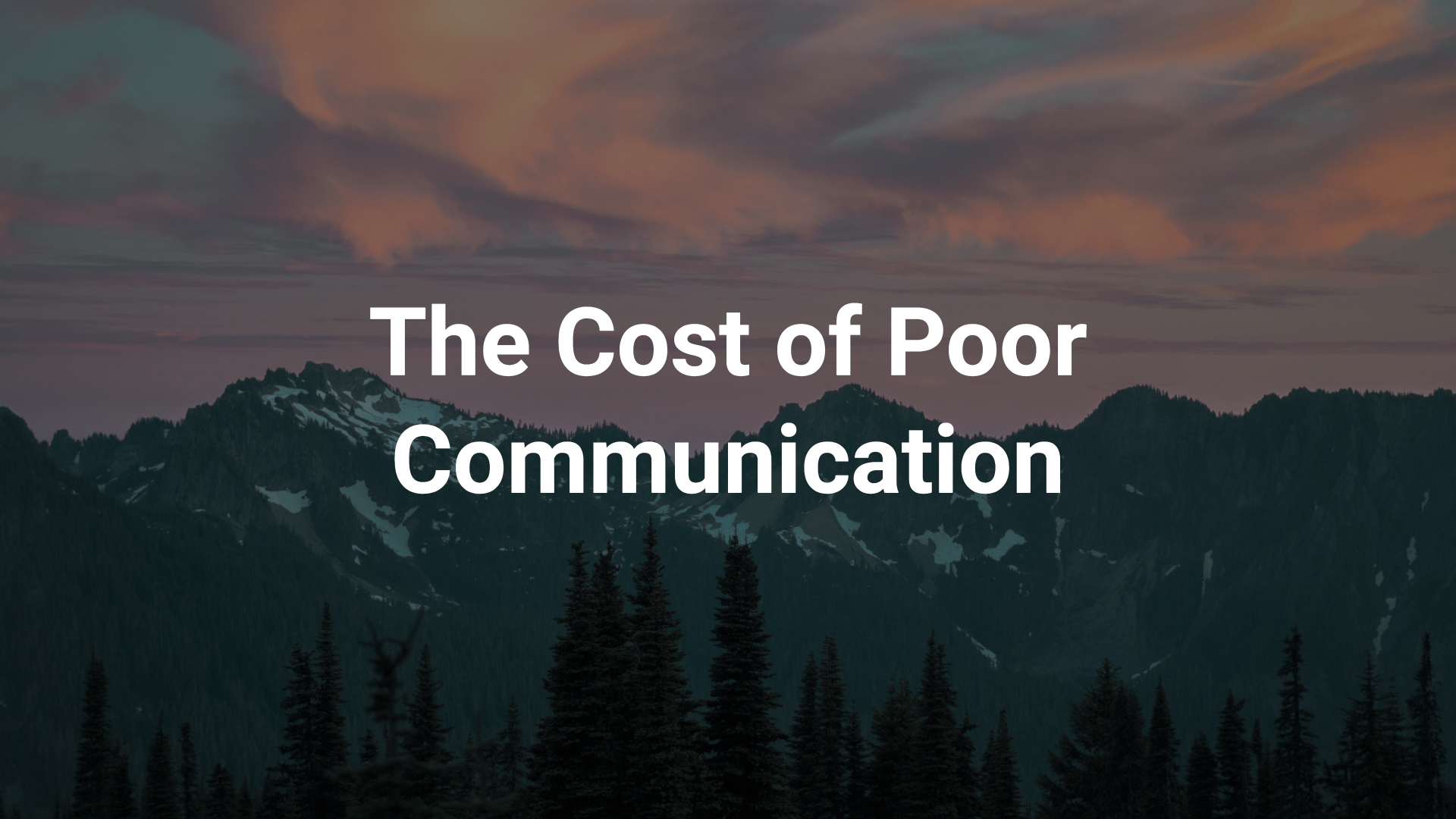When it comes to effective communication, technology copywriting isn’t an exception. To get your point across without alienating your reader, clarity is key.
Michael Pratt, professor of management and organization at Boston College puts it this way: “If people don’t understand what you do, they devalue what you do.”
If your technology product or service is being devalued by poor communication in the form of poorly written copy or content — what’s the cost to your business?
In her book We Need to Talk, author Celeste Headlee states that poor communication costs businesses about $37 billion a year. Broken down per worker, and only including companies with more than 100 employees, that’s $26,000 per person annually. Considering that data is at least three years old now, I would bet the number is actually higher.
Your written communication is packaging that your customers experience. Your spelling, grammar, voice, even the visual design of your marketing content play a part in supporting or undermining the impact you deliver with your solution.
There are many, many reasons why companies publish poor content — lack of dedicated content budget, asking non-writer employees to write, poor planning leading to rushed campaigns, the list goes on. But customers don’t care what your reasoning is. If they can’t understand you, they’re going to engage with someone they can understand.
Good copy and content, like any good communication, takes thoughtfulness. It can take time and resources, too.
In some cases, it takes literal thoughtfulness — as in, thinking time. Christian McEwen remarks in her book World Enough & Time that scientific studies have shown that “challenging work may require more dreaming.” I know few companies who give their writers time to dream.
Dreaming may come at too high a cost for technology companies — but editing and rewriting shouldn’t. Writing and editing are two distinct tasks that require distinct mindsets. “Drafting demands a curious mindset, with low attentional filters to let divergent ideas in. Editing requires an evaluative mindset, which is about raising your attentional filters to keep divergent thoughts out,” says author, speaker and Wharton professor Adam Grant. In Writing to Learn, William Zinssner says, “[T]he essence of writing is rewriting. Very few writers say on their first try what they want to say.”
Considering how often I see marketing content riddled with mistakes, overly technical verbiage, or unhelpful, cliché, or even plagiarized statements, I can’t help but believe very few technology companies are investing time in editing and rewriting.
Take your time, dedicate the resources, and write right. The cost of poor communication is too high.
